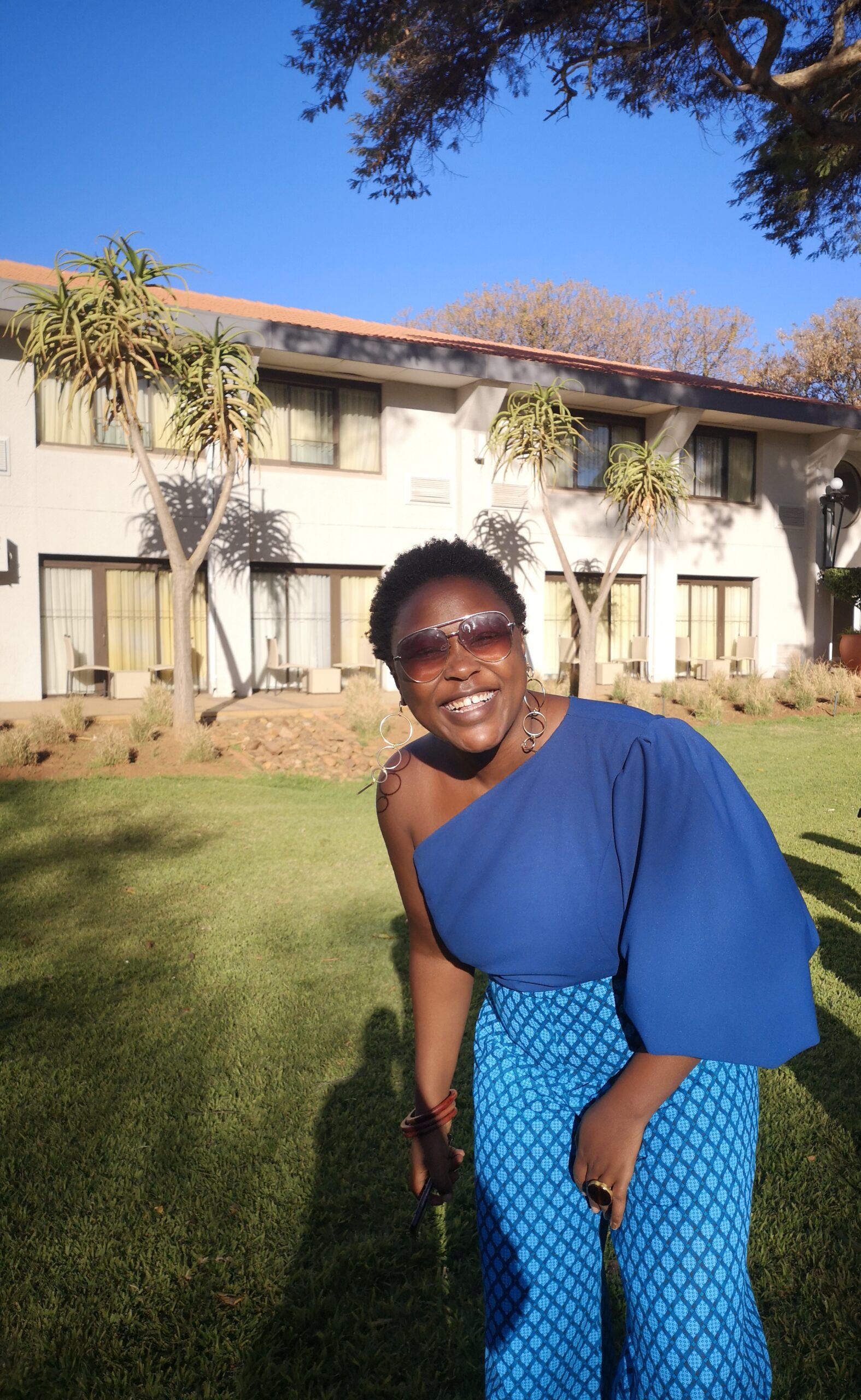Abigail Arunga has been a prominent figure in the Kenyan creative scene for the past 12 years. She is a versatile talent, known as a writer, author, editor, columnist, moderator, scriptwriter, social media manager, influencer, publicist, poet, copywriter, bookstore owner, quizmaster, podcaster, and MC. She is also deeply passionate about the arts, pop culture, current affairs, and social justice.
Her impressive portfolio includes serving as a scriptwriter for the award-winning soap opera Lies That Bind and writing for M-Net shows such as Block D and How To Find A Husband, as well as Showmax title Pepeta.
Now, Abigail returns as the head writer for Showmax’s latest adult drama, 4Play. This 18-rated series follows the lives of four friends navigating the complexities of love, friendship, and ambition in the vibrant city of Nairobi. Infused with humour, nightlife, and the quintessential grit of Nairobi, 4Play gives viewers a bold, sexy, and authentic portrayal of contemporary Kenyan life.
In an exclusive, Abigail shares more on the process of creating 4Play, finding her creative voice and tackling taboo topics on the show.
What inspired you as a writer to join this ambitious project?
The reason I came onto the show was wanting to show the men I knew on screen. I took inspiration from every man that I have interacted with in my lifetime – whether my brothers, cousins, or people I went to school with – each character has a little inspiration from the Kenyan men I know. I want more people to watch Kenyan shows, and if that’s to happen, I need to write about Kenyans in a Kenyan way.
How was your experience developing 4Play in the writers’ room?
This show is different from any other project I have done before because I felt like I was kind of allowed to have a creative voice in terms of discussing adults, adult stories, and adult sensuality. A lot of our shows today have been kind of, not necessarily formulaic, but there’s a lot of stuff that we have seen before. Not that it is a bad thing. I just believe there should be as many variations of a story as there can be. Sometimes it is fun to do something that has completely not been done. I have never seen a Kenyan show that’s about four men just being themselves. So, this was fun to write.
4Play could be interpreted as Kenya’s answer to South Africa’s Adulting. Is it true? What would you say about the comparisons?
That is a funny question. I do understand the similarities – the provocativeness, the scandal, the raunchiness – but the similarity really ends at it being a show about four men. Therefore, the stories you will find in 4Play are authentically Kenyan.
I love Adulting, but it’s not like our show. Shout out to the creators! I admire how South Africa is bold in its storytelling. Here at home, we are very conservative, leaving our “bedroom issues” off-screen, and with 4Play we were looking to blend both worlds and showcase how these issues also affect the outside world. I can’t wait for the point when Kenyans will overcome that conservatism because we are bold, daring, colorful and sensual beings. And I want to see that on TV, and that was the show we were creating.
This is the second time you are collaborating with James Kombo after Pepeta. Tell us about this.
Ironically, we conceptualised Pepeta and 4Play at the same time during a meeting we had in 2018. We had two ideas: one about football and one about men. We ended up developing them concurrently but ended up with Pepeta first. They are very different. Pepeta is based on a true story, which gives you a lot of material to work with.
Looking at 4Play, it is more about adult relationships in Nairobi and the rest of Kenya, while tackling taboo topics like sex work and addictions, which gave us a lot of room for imagination during the conceptualisation stage.
Being one of Showmax’s 18-rated Kenyan originals, were there any risky creative decisions you made for 4Play? How did you balance pushing boundaries with appealing to a Kenyan audience?
When we started, it was nice to work with a Commissioning Editor at MultiChoice who gave us leeway. We didn’t have to make risky decisions upfront; instead, we did what we thought was risky and creative and figured out later if it would stay or not. We really tried to depict all kinds of things and iterations of Nairobi’s underbelly – high-rise buildings, the nightlife, the club lifestyle, elite brothels, the escort business – showing all that we know exists but don’t openly acknowledge.
Kenyans claim to be conservative, but they consume a lot of tabloid news and scandalous media. So even appeal-wise, we weren’t thinking of targeting conservatives; we were being realistic about the story.
Who is your favourite character in 4Play and why?
Michael. He represents the typical Kenyan guy just trying to do the right thing. There’s a sweetness and idealism in Michael that I really love; he wants to live in a world that doesn’t exist, but he still tries.
I also enjoyed Miss Candy. The inspiration behind Miss Candy was that sex work is unnecessarily hidden. We know it exists – people are doing it. Let’s just acknowledge it because sex work is work. This character has a job that’s just like any other, with responsibilities and “black tax” to pay. I wanted to show a character who is not just a sex worker but a layered person with a family, feelings, and challenges. It’s interesting because people think certain types of work are better than others, but we’re all just trying to live and be adults. So, I wanted to blur that line.
When you’re not working on a set, how do you unwind?
My friends probably make each day a little easier. And my bed – I think high school gave me some trauma, so I love being in bed because I wasn’t allowed to be there long in high school (laughs). I also love reading books. I am currently reading The Understudy by David Nicholls.
What’s next for Abigail?
I want to do a couple of projects this year. I just co-directed my first short film, a dramedy about a girl who thinks she’s dying for various reasons. I’m also writing a short film on abortion – something Kenyan audiences shy away from. I want to continue telling stories that push boundaries.
4Play is NOW streaming on Showmax, with new episodes releasing every other Thursday.







